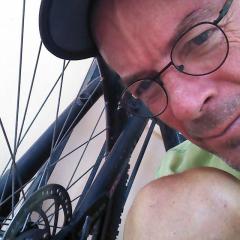Henry Kissinger and the American Century
Dr. Jeremi Suri’s book, Henry Kissinger and the American Century (2007) intends to show, not what Henry Kissinger did, as much as why he did what he did, (5). Though Kissinger claimed not to be the product of a traumatized youth and childhood, he had been a Jew in Hitler’s Germany, a refugee in New York, a soldier in World War II, and an outsider at Harvard. All those factors contributed to the man he became, and the policies he would promote. He seems the heir to Stephen Zweig, in a generation that had to pick up the pieces. His wonder years remind me of the Irish poet, W.B. Yeats, whose The Second Coming (1938) appears below. Moreover, Kissinger was, like Kotkin’s Stalin, particularly well-situated in time and place to acquire and exercise global power during a critical period of the Cold War. He was a transatlantic bridge, an in-between figure, who understood what statesmen wanted and channeled their energies to benefit US interests, during a period when the Unites States needed one. It was to be the American Century and the US would become the world’s self-proclaimed Good Samaritan.
Remembered by some as a hero, and by others as a war criminal, Dr. Kissinger’s intellectual brilliance and stamina are unquestionable. It is a surprise to discover that the prophet of foreign policy realpolitik felt driven by moral urgency, yet in that sense, he is a man of his time. My parents who grew up during World War II. When I was maybe 12, my Dad sat me down and explained that even if the Vietnam War was a fool’s game, “you gotta try…” It was his short version of Broadway’s Impossible Dream, (to march into hell and return for a heavenly cause…) And to this day, my aging mother belongs to what we have always laughingly called, the John Wayne School of Foreign Policy, best represented by the 1965 film that Mr. Wayne wrote, directed, produced and starred in, The Alamo. (About which historians have said no scene or dialogue bears any resemblance to historical fact.)
Kissinger was more sophisticated that John Wayne, of course, but just as famous and just as morally driven. He admired the cleverness (or, call it, cunning) of Bismarck, and his conviction had roots in the Churchillian principle that weakness of good people does more harm than the might of the evil. (See Y.B. Yeats, below, "the best lack all conviction while the worst are full of passionate intensity.") Lucky for Augusto Pinochet, Kissinger tended to trust power more than democracy. But he certainly ended up with egg on his face in December of 1976 after everybody's favorite Chilean strongman sent assassins to Washington to blow up cars on Embassy Row. (The picture on page 241, Henry shaking hands with the devil, is from his visit to Santiago just a few months before.)
Perhaps Kissinger thought of himself as a Nietzschean superman, exempt from the ordinary limits of human action in the pursuit of a greater good, to which philosopher kings and smart people at Harvard have direct and exclusive access. He is, after a fashion, in that sense, a crusader. But crusaders, especially morally driven ones, are vulnerable to one-sided world-views. Strange, for a man as obviously cosmopolitan as Dr. Kissinger.
The pervasive emphasis on moral obligation, Western values and Judeo-Christian ethics (an Army surplus commodity from World War II, I had no idea) seem to clash with notions like the necessary willingness to use nuclear weapons and support for dictators with horrible human rights records. The lesser evil argument (186) seems incongruous with the ethically charged foundation. He’s like Machiavelli with a rosary. His sense of the “organic immanence of existence” (30) points to religious mysticism, not to nuclear brinksmanship. Kissinger’s righteousness seems, in some ways, self-righteous, and insensitive to the collateral damage of policy decisions. The question arises, was this in the service of superior Western values, or global white supremacy? (What would Immerwahr think?)
One last curious observation. The holy-sounding concept of righteousness owes its existence to a translation error in the King James Bible (early 17th century) and, thus, only exists in English-speaking and mostly Protestant Christianity. The term, righteous or righteousness, appears 540 times in that translation. Just or justice appears only 122 times, such that it would seem to be of drastically secondary importance. But in fact, all 662 occurrences of both terms translate either the Hebrew triad, ZDK, or the Greek concept, dikaiosyne, both of which mean, not righteousness, but justice. It made being right (as opposed to others who are wrong and need to get bombed, not with bad vodka, but with tactical nukes) more important than being fair and making sure poor people have enough to eat and a place to sleep. (As a clever Austin bumper-sticker put it, "Who would Jesus bomb?") In this strange world, justice became a communist slogan, a reason why they had to annihilate all the unjust capitalists. (And a reason why liberation theology came up in Latin America, where the Bible talks about justice and John Paul II said everyone was communist.) In this sense, the later Kissinger, of summits and shuttle diplomacy, was perhaps less righteously driven than his earlier version. He was perhaps, leaving behind his US Army Judeo-Christianity and recovering his Orthodox Jewish mysticism, a place with a greater tolerance for ambiguity.
| Previous page on path | What's the point of history, anyway?, page 19 of 30 | Next page on path |

Discussion of "Henry Kissinger and the American Century"
Add your voice to this discussion.
Checking your signed in status ...